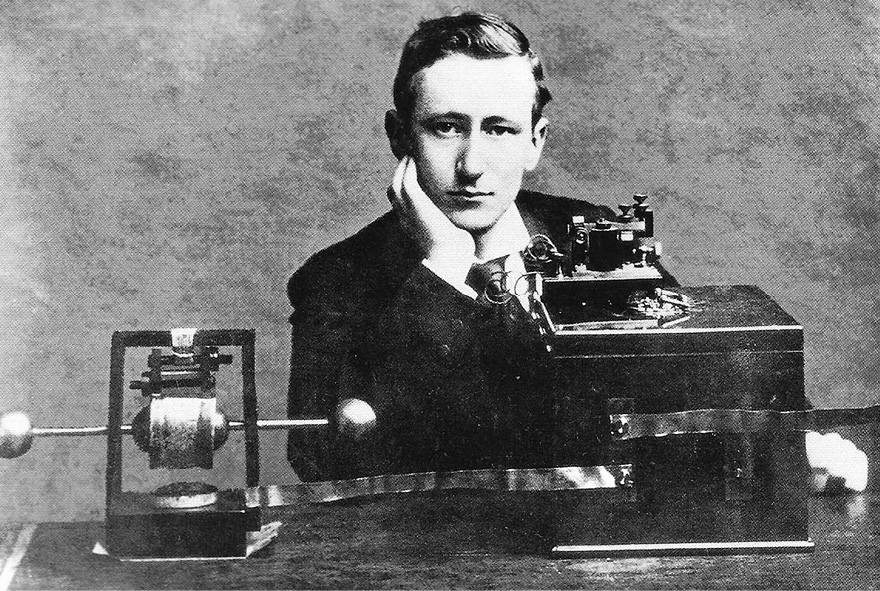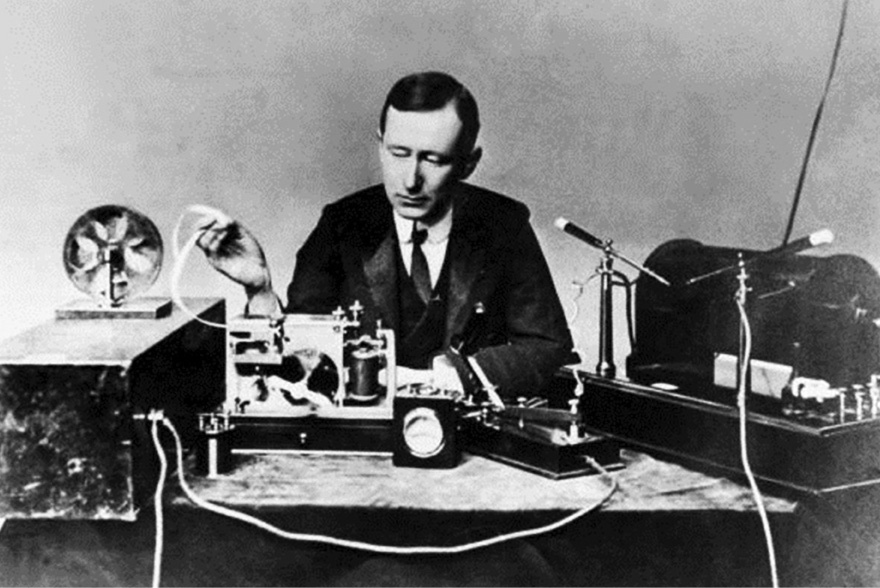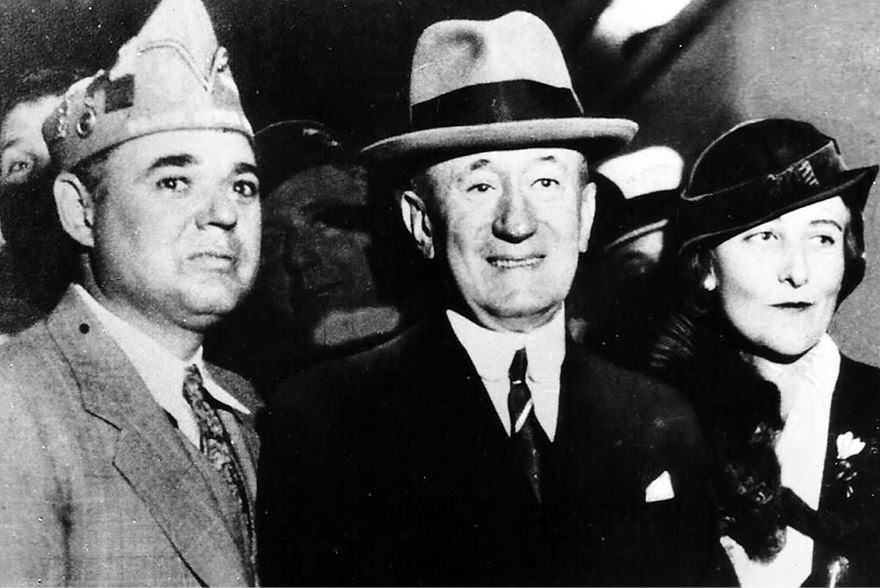The incorrect information about the scientific and technical work of Guglielmo Marconi has very deep roots. It began in fact when the newspapers published that in England a young Italian had invented a new system of wireless communication using electric waves.
The news, disclosed without providing any technical detail, caused the immediate objection of scientists who, according to the dominant scientific theories, argued that the electric waves, discovered a decade earlier by German physicist Heinrich Hertz, could not allow the development of any system of wireless telegraphy because, acting as optical radiation, they were propagated only on straight paths without natural obstacles.
To create wireless telegraphy with electromagnetic waves that could be propagated at a distance ‒ even overcoming natural barriers and the curvature of the earth ‒ it was necessary to use those that could be generated and received only through the devices invented and patented by Marconi.
Marconi's original wireless consisted in fact of a radiator transmitter equipped with physical dimensions and electrical characteristics completely different than Hertz's radiator known as dipole, and a real receiver that could decrypt and print a message in Morse code, at distances greater than those attainable by a voice amplified by a megaphone.
The only transceiver radio system that obtained this result was patented by Guglielmo Marconi, in London, June 2nd, 1896. Marconi patented his invention in England because only in that country, thanks to the favourable presence of his mother’s influential relatives, he could hope to find the necessary financial resources to extend the patent in major countries around the world.

In Italy, because of his young age and his lack of formal training, what he proposed would have been considered the product of the exuberant imagination of a young man.
In London, Marconi was instead able to find the money necessary to patent his invention immediately, set up an industrial company to develop the first two-way radio, and found a school, known as Marconi's College to provide the necessary engineering training a specialization in the new art of radio communications.
It was in fact an art which had not yet been contemplated at university, and when we think that Marconi at age twenty-two, in an incredibly short time succeeded in achieving the goals he had set up from the beginning, with a clear and strong vision, you cannot help but feel admiration and amazement. In 1899, only three years after obtaining the patent, the navy of the United States of America, one of the most technologically advanced in the field of electrical applications, invited Marconi to present on some warships practical demonstrations of wireless telegraphy.

This fact is of incalculable historical value because it is the irrefutable proof that, three years after obtaining the patent, the radio was only in the hands of those who had invented it: otherwise American engineers would have developed it without the need for scientific and technical advice from a young twenty-five year old foreigner. If we want to avoid the continued distortion of the historical truth about the authorship of the radio in so much documentation, Web pages as well as radio and television broadcasts, an authoritative scientific institution should examine the historical records that have allowed the author to receive the honorary title of Marconist of the XXI Century.
In fact, after the end of World War II, the Academy of Sciences in Moscow ‒ without providing any valid historical document ‒ officially established that the radio had been invented by Russian physicist Aleksander Stepanovich Popov, on May 7th, 1895. No Italian academy of sciences has ever disputed this claim, designed for political reasons of prestige and propaganda by the past Soviet regime, and officially established that the invention of the radio belongs to Guglielmo Marconi.
To officially establish this fact on the occasion of World Radio Day would represent the best tribute paid to the memory of a great scientist, benefactor of all humanity. For this equally valuable work he has become a Citizen of the World.

Lodovico Gualandi recently published an essay entitled Marconi in Braille dedicated to all blind and visually impaired people who want to know the historical truth about the authorship of the radio, unjustly challenged in much print and electronic documentation. In the opinion of the Bolognese scholar, author of one of the most extensive research on the true origins of the radio, the reasons for the overwhelming success of the first Italian who was awarded the Nobel Prize in Physics are based on the originality and scientific importance of his equipment, while objections can be attributed to an incorrect interpretation, scientific and technical, of their actual functions.




.png)